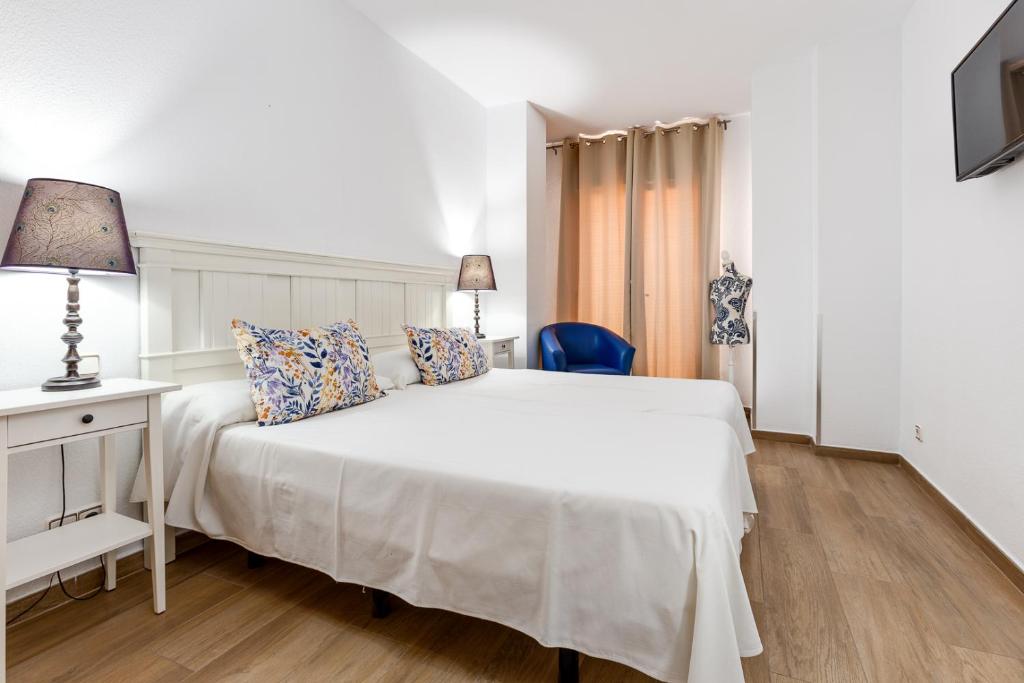A tour of the urban, cultural and natural attractions of the emblematic city of Las Habaneras.
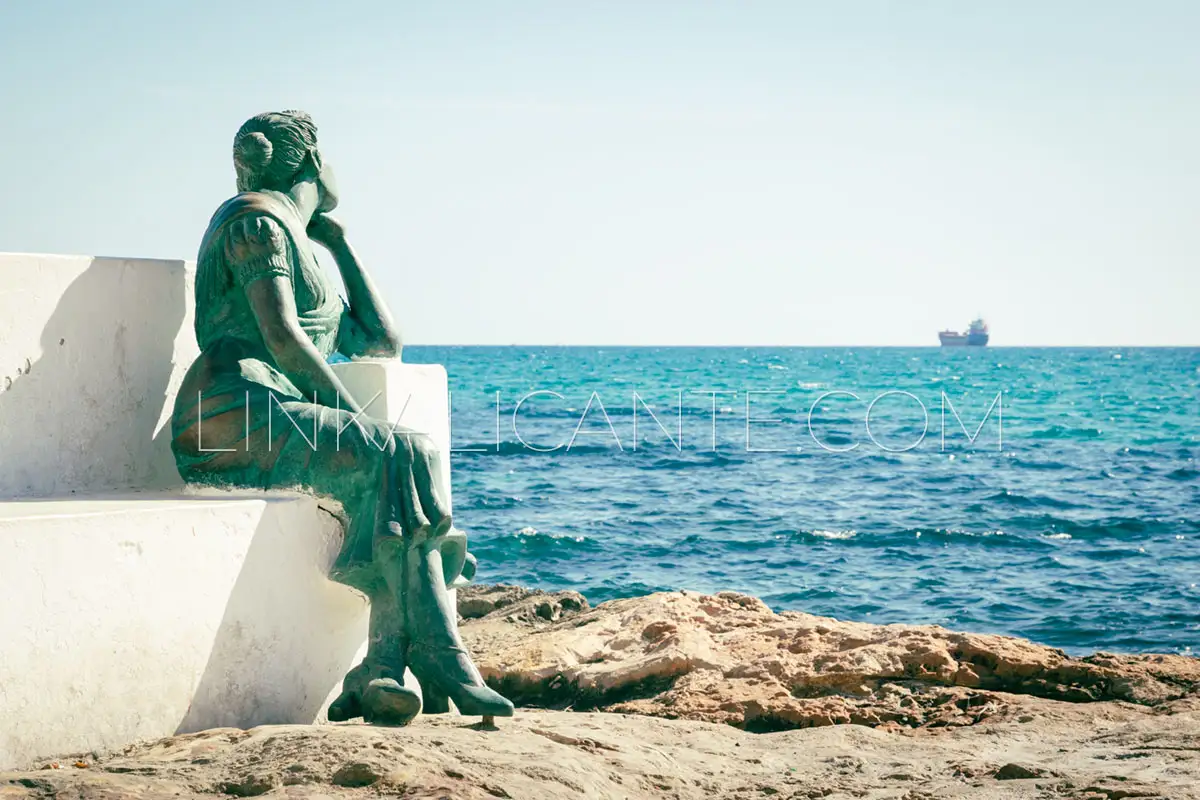
Located in the south of the province of Alicante, there is no doubt that Torrevieja is one of the main tourist destinations on the Costa Blanca . Its magnificent beaches have 6 blue flags distributed along its 20 kilometers of coastline. This is, without a doubt, Torrevieja’s most powerful attraction.
However, in this article about the best things to see in Torrevieja, we will discover many more attractions in this town of seafaring tradition. Stay until the end to discover them all!
Índice del Artículo
ToggleIntroduction
TorreviejaThe town, a coastal municipality in the region of the Vega Baja, in the south of the province of Alicante, is a town with a population of beautiful story indissolubly linked to the sea and, above all, to saltThe origin of the city dates back to the year 1803, when the salt exploitation was transferred from the kill to what would become today’s Torrevieja.
Today, Torrevieja is a modern cosmopolitan city with just over 84,000 inhabitants (the third most populous in the province of Alicante) that has all the services, amenities and a wide range of hotels, restaurants and leisure options. Its magnificent beaches, its mild temperatures and its more than 320 days of sunshine a year have made the city of Las Habaneras one of the tourist references in the southeast of the peninsula. The holiday rental offer in Torrevieja is beyond doubt, with innumerable residential areas where many Europeans have found the perfect place to enjoy their second home.
Urban attractions of Torrevieja
Immaculate Conception Church
The main church of Torrevieja is the church of the Immaculate Conception, of neoclassical style. A construction that was built with the ashlars from the old watchtower that gives its name to the town -the Old Tower-, after a devastating earthquake destroyed it in 1829, along with a large part of the city.
The streets of the traditional center (around the town hall) are pedestrian (or semi-pedestrian) and in them we find a wide range of restaurants and shops of various kinds. In summer we have found that the area is quiet until late at night, when tourists return from the beaches.
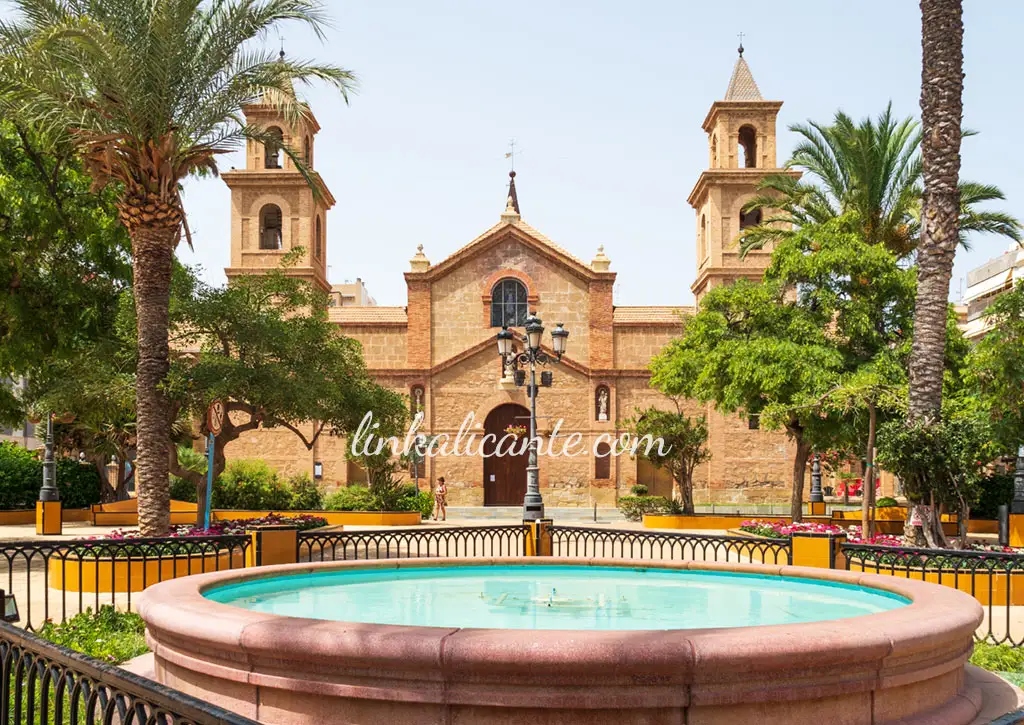
2. Park of the Nations
Parks abound in Torrevieja, with Doña Sinforosa and Parque de Las Naciones being the most prominent among many others.
3. Cultural spaces
In the cultural aspect, the International Auditorium should be highlighted, with an interesting program of shows. It is also worth visiting the Torrevieja Casino , a modernist-style building built in 1896.
The most important building for cultural use in Torrevieja, with two rooms with capacity for 1,450 and 385 spectators. Do not miss their concert schedule.
More cultural spaces in Torrevieja:
- Palace of the music
- Municipal theater
- Virgen del Carmen Cultural Center
- Torrevieja Casino Cultural Society
- Vista Alegre Exhibition Hall
- Cisterns Exhibition Hall
- Municipal library
- Historic Monumental Complex of the Eras de la Sal
4. Sea and Salt Museum
One of the essential museums in Torrevieja. A visit to its ethnological collection immerses us in the origins of the population, linked to the sea and salt exploitation. More information.
5. Navy Ships
As“floating museums“, the Spanish Navy submarine S-61 Delfín and the former patrol boat Albatros III are located in the port of the town.
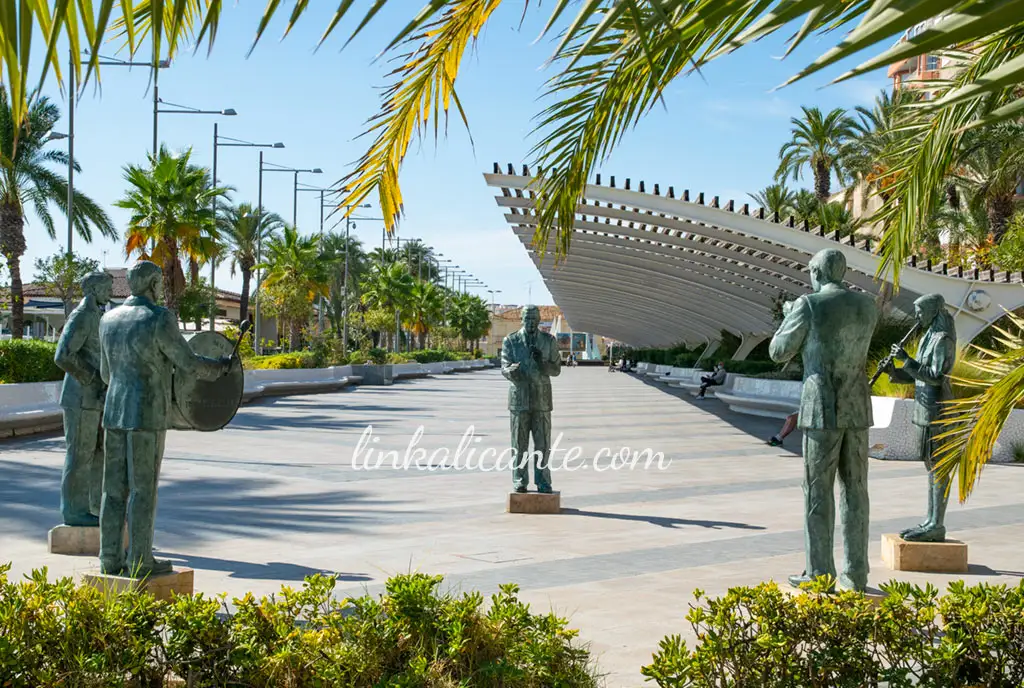
6. Torrevieja Promenade
Torrevieja’s maritime façade is ideal for enjoying relaxed walks along the seashore. From Playa del Cura , we walk to Paseo Juan Aparicio , where we can admire the sculpture in honor of Bella Lola ―a popular Havanan― or the Monument to the Man of the Sea . To continue, we can cross the extensive Levant Dam, three kilometers long, or go to the Eras de la Sal , an old wooden jetty through which the salt from the Salinas was loaded onto barges bound for different countries. .
It is in this historic venue that one of the most important events in Torrevieja is held: the International Habaneras and Polyphony Contest , declared of International Tourist Interest. The origin of this event we have to look for in the trips of the Torrevieja sailors to Cuban lands , where this musical style comes from. It is said that the sailors used to listen to habaneras in the cafes of Havana, while they waited melancholy for the return of their ships.
In 1940, the Torrevieja trawling and purse-seine fleet was the largest in the Mediterranean, with more than 500 fishermen on board.
Fuente: pescadetorrevieja.com
7. Visit to the Torrevieja Salt Flats
The history of Torrevieja is linked to that of its Reales Salinas , possession of the crown for centuries, and of which there is evidence of their exploitation already before the 12th century. It was from the decree of Carlos IV, ordering the transfer of the Salinas exploitation center from its origin in the kill until its location in the current Torrevieja, in the year 1803, when the group of salt workers’ houses around the old watchtower of the coast -the Old Tower- began to grow until it became the prosperous city that in 1931 obtained The title of city by Alfonso XIII.
The City Council of Torrevieja offers six daily shifts of a guided visit to the Laguna Rosa de Torrevieja , that is, to the salt exploitation, which is carried out by means of a little tourist train . Lasting one hour, this tour allows you to get to know the most important sea salt flats in Europe , with a price of €8.95 for adults and €7.95 for children and people over 65 years of age.
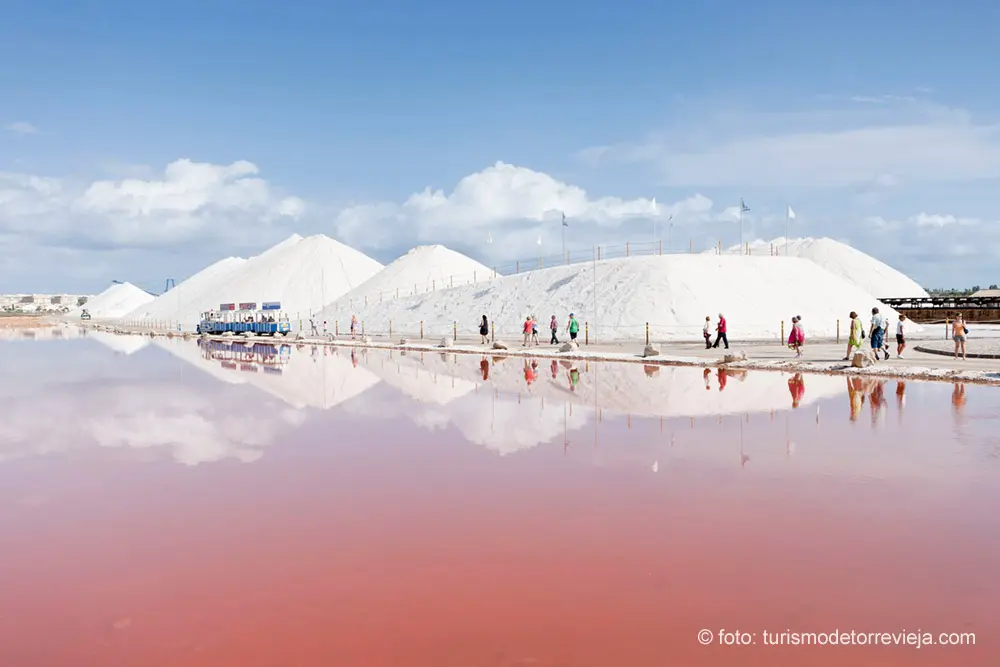
8. Typical Products of Torrevieja
If you are looking for an establishment where you can buy typical Torrevieja products, we recommend Casa Maciá Specialties , located in the same building as the Central Market “La Plasa”. Active since 1950, there you will find salt from Torrevieja, local wines, salted fish, olive oil and other quality and proximity products. Without a doubt the place to buy the best souvenir !
9. Natural Park of the Lagunas de La Mata and Torrevieja.
At present, although still exploited, the environment of the Torrevieja salt flats gives rise to the Natural Park of the Lagunas de la Mata and Torrevieja, shared with the towns of Guardamar del Segura, Los Montesinos and Rojales. The Generalitat Valenciana decreed the protection of this natural space in 1996, thanks to its great environmental importance .
It is made up of two lagoons – the emerald green of La Mata and the striking pink lagoon of Torrevieja-habitat for numerous species of plants and animals. birdsamong which stands out the colorful flamencoconcentrations of more than 2,000 specimens have been recorded. Equally important is the presence of the Artemia salina , a small crustacean that forms the base of the food chain for the more than 100 species of birds that take refuge in the lagoons during their migrations or wintering.
We take this opportunity to remember that bathing in the Lagunas de La Mata and Torrevieja is prohibited .
10. Ecotourism in La Mata Lagoon
To get to know the Lagunas de la Mata and Torrevieja Natural Park, closely related to El Hondo and the Salinas de Santa Pola , its Interpretation Center, located next to the Laguna de la Mata , is also a must.
Several low-difficulty walking routes start from there, as well as an accessible route , suitable for people with functional diversity.
In this environment, the existence of a unique vineyard stands out which, thanks to the fact that it grows on a sandy substrate, managed to survive the terrible phylloxera plague that devastated this crop throughout Europe during the 19th century.
To learn more about all these attractions, we recommend participating in the ecotourism routes organized by the Torrevieja City Council.
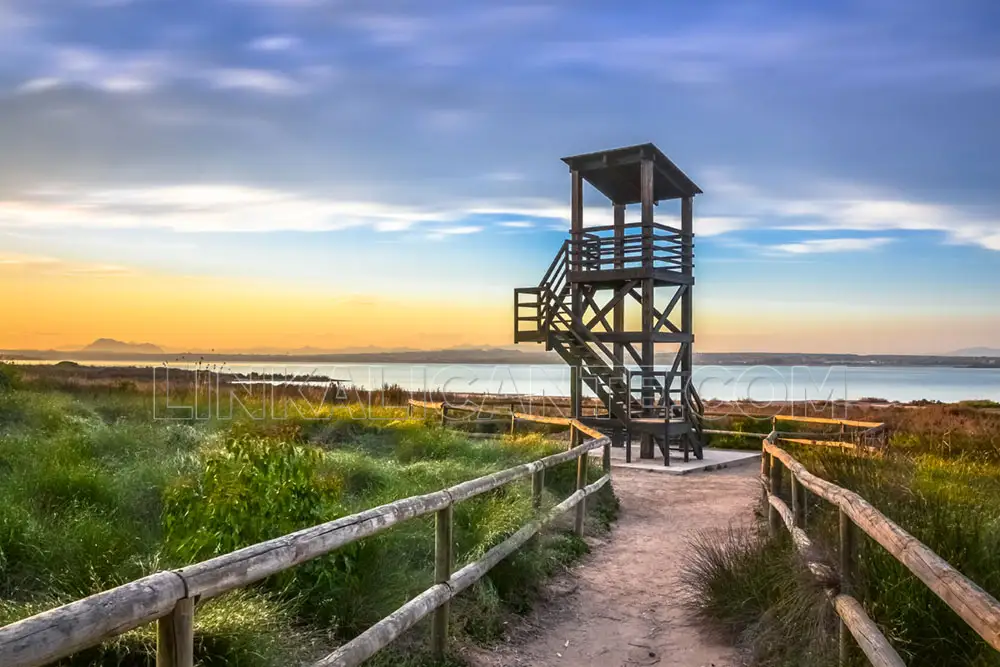
Practical Info Torrevieja
The best hotels in Torrevieja
Torrevieja has a wide range of hotels and tourist apartments that we invite you to discover:
Tourist Info Torrevieja
Paseo Vista Alegre s/n
96 570 34 33
torrevieja@touristinfo.net
Monday to Friday: 9:00 a.m. to 7:00 p.m.
Saturdays: 9:30 a.m. to 1:30 p.m.
Activities in Torrevieja
Coves and Beaches of Torrevieja
Beaches and coves of all kinds dot the 20 kilometers of Torrevieja coastline. From the urban ones of El Cura or Los Náufragos , to Playa de la Mata , with fine sand and the largest in the municipality.
We are going to review the main beaches and coves of Torrevieja , from north to south:
11. Beach of La Mata or Torrelamata
Length : 2.3 km. Width : 47 meters.
Located in the district of the same name, it is an extensive beach of fine sand, ideal for a relaxed stroll. It has services and a blue flag.
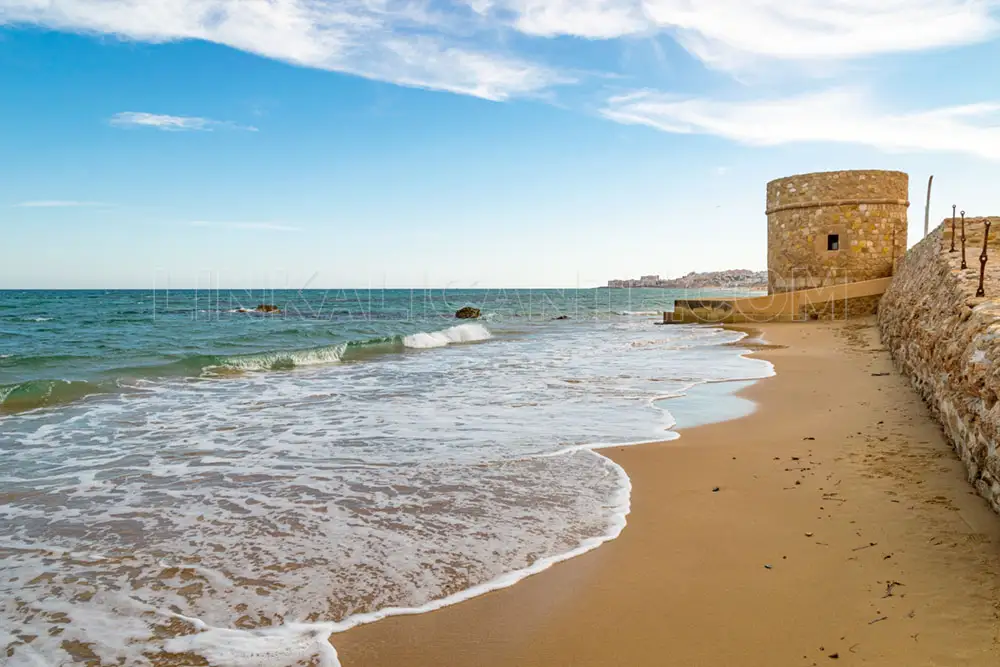
12. Cape Cervera
Length : 100m. Width : 25 meters. Fine sand and rocky bed.
Walking south, at the end of Playa de la Mata we find Cape Cervera. At the north end of it, Cala Cabo Cervera is a small beach with crystal clear waters and fine sand on a rocky bed. Blue flag, accessible beach.
13. Las Calas de Torrevieja
Between Cabo Cervera and Punta del Salaret we find the steepest and steepest stretch of coastline in Torrevieja. A stretch of rocky coastline that gives way to a succession of coves perfect for snorkeling. They are the following:
Moor’s Cove . Just at the end of Cabo Cervera to the south. Some sand, easy access.
Cala del Mojon . Small cove of rocks and crystal clear waters.
Fox Cove . Steep area with good parking.
Higuera Cove . Small sandy cove with easy access via a wooden platform.
Cala Redonda, Cala del Gambote, Cala Tía Roqueta, Cala de los Trabajos and Cala Cornuda . All of them in a rocky area, ideal for snorkeling.
14. Los Locos Beach
Length : 760 meters. Width : 27 meters.
This urban beach, of fine sand and with all the services, receives this name from an old sanatorium that was in the area. Blue flag.
15. Cura Beach
Length : 375m. Width : 27 meters.
The beach par excellence of Torrevieja, which is located next to the city’s promenade. Fine sand and all services. Blue flag.
16. Natural Pools
Protected by a set of small breakwaters, we find these two small urban beaches, with fine sand and accessible, ideal for children and the elderly.
17. Acequión Beach
Protected by the Levante Dock and the Salt Dock, this urban beach is located next to the port of Torrevieja. With very calm waters and little depth, it may not be the cleanest but it is one of the safest. Its name is due to the fact that at this point the canal that channels the water into the Laguna Salada de Torrevieja is born; water that will later be dried to produce salt, a hallmark of the population.
18. Castaway Beach
Length : 325 meters. Width : 77m.
The Dique de la Sal gives way to the Playa de los Náufragos, one of the many beaches in Torrevieja that has this distinction.
19. Ferris Cove
Among the many coves, our favorite is Cala Ferris : a small sandy cove flanked by rocky outcrops and protected by a palm grove , which allows us to enjoy one of the few virgin stretches of the coastline of this tourist town.
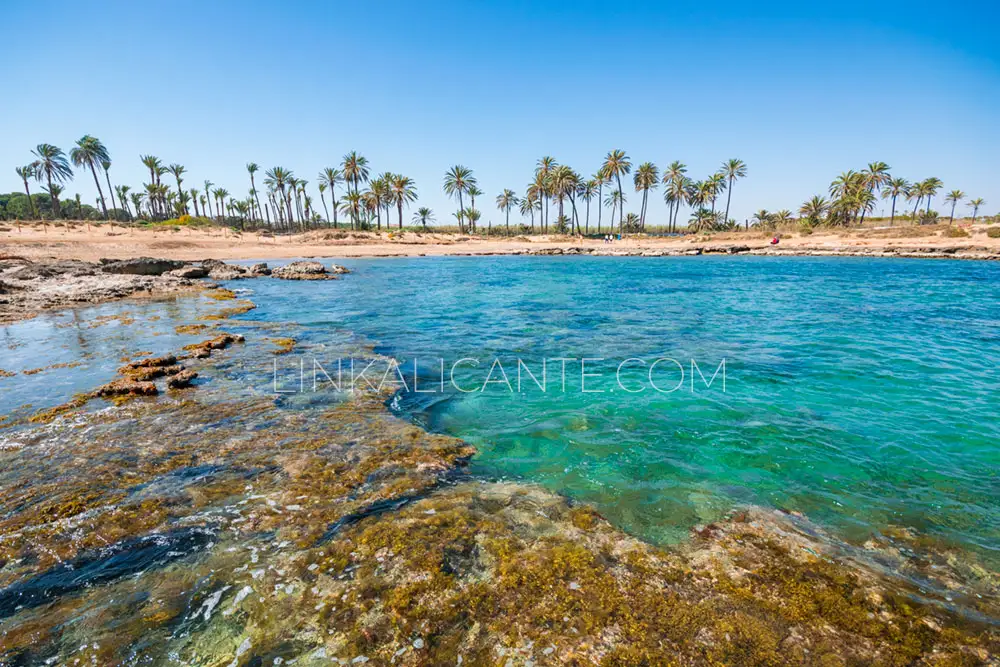
20. Rocío del Mar dog beach
Torrevieja also has a dog beach: Playa Rocío del Mar. More information here .
21. Piteras Cove
We finish our tour of the coves and beaches of Torrevieja in Cala Piteras, a small cove of fine sand that has a Blue Flag. The Paseo de los Vientos stands out in this area, a wide promenade that we can continue to Punta Prima, the cape that marks the dividing line with Orihuela Costa.
We hope you have enjoyed this tour of the Torrevieja coastline.
Video About Torrevieja
To close this article on Torrevieja, we leave you with a video that is part of the documentary series ” Alicante town by town “, where you can discover other attractions of this town linked to the sea and salt.
As you can see, there is much to discover in Torrevieja, are you going to miss it?
Are you interested...
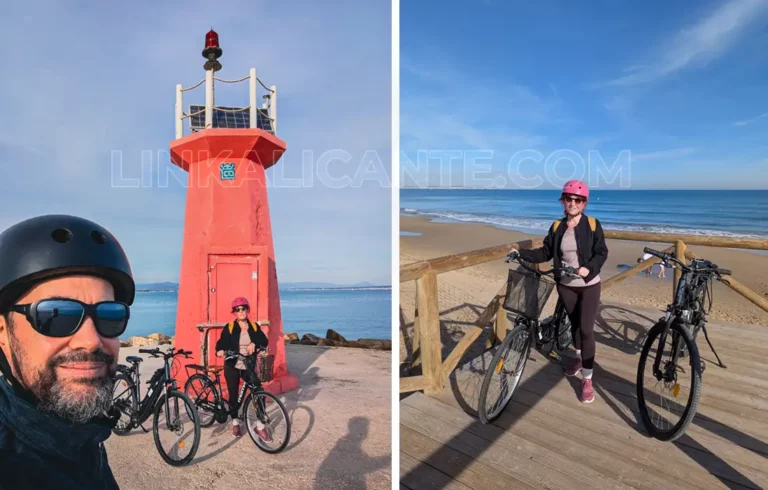
21 Things to see and do in Guardamar del Segura
A Challenge: I bet you your email that with this article you will discover that Guardamar has much more to offer besides sun and beach. Shall we play?
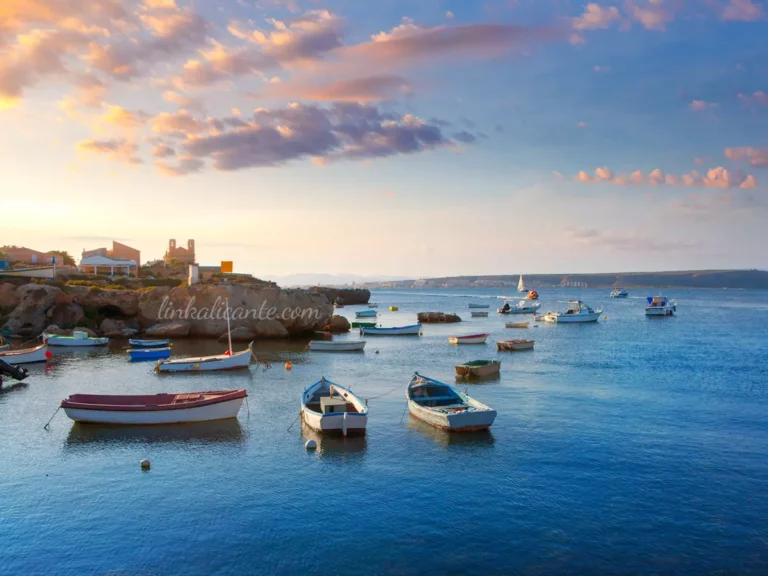
TABARCA Island: What to see, how to get there, beaches and gastronomy ⛵️
Complete guide about Tabarca Island (Alicante): discover what to see, where to eat and what to do in the biggest island of the Valencian Community.
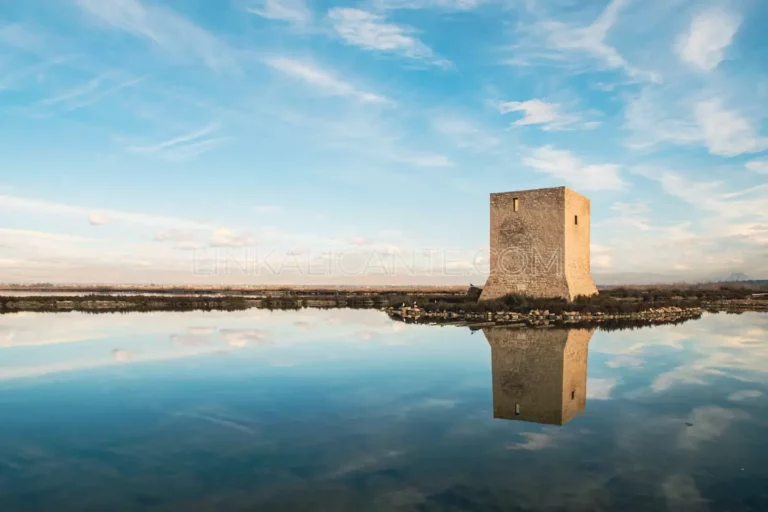
What to see in SANTA POLA: nature, culture, gastronomy and more
The best plans and places to visit in Santa Pola, beyond the beaches.
Guide to make the most of your stay.

